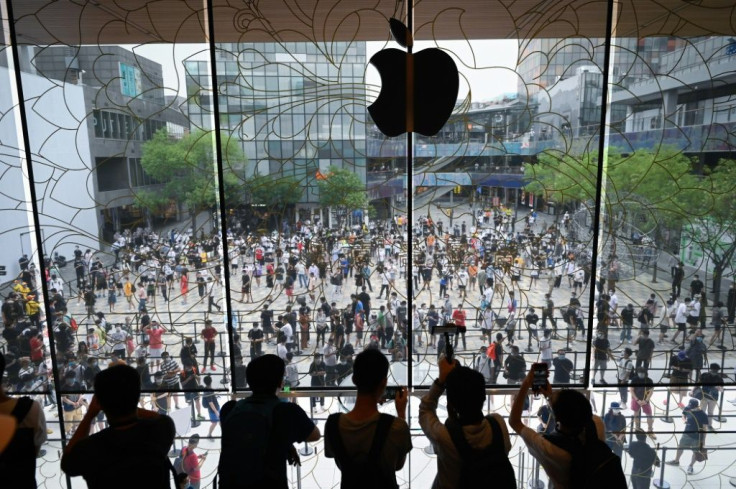Apple Now Has Larger Market Cap Than UK's Entire FTSE-100 Stock Index

KEY POINTS
- Apple’s valuation now exceeds the approximate $2 trillion value of all components in the FTSE 100
- Since Mar. 23 lows, Apple shares have surged 135%
- From its January highs, the FTSE 100 has dropped 22%
U.S. tech giant Apple (AAPL) now has a greater market cap value than all the companies in Britain’s FTSE 100 index combined.
With a market cap of about $2.25 trillion as of Wednesday morning, Apple’s valuation now exceeds the approximate $2 trillion value of all components in the FTSE 100, which is comprised of the U.K.’s biggest publicly listed companies.
Since Mar. 23 lows, Apple shares have surged 135%. Over that same span, the FTSE 100 has risen 17.4%. From its January highs, the FTSE 100 has dropped 22%.
Large-cap tech stocks like Apple, Facebook (FB) and Google-parent Alphabet (GOOG) have flourished during the COVID-19 pandemic as locked down individuals have increased their digital activities.
In contrast, the FTSE 100 index includes many oil and banking stocks, including HSBC (HSBC), BP (BP), Royal Dutch Shell (RDS-A). The sectors have been hammered this year by the effects of the pandemic.
The FTSE 100 also has a large number of companies engaged in real estate, aviation, hospitality and brick-and-mortar retail.
As of Wednesday morning, the largest component of FTSE 100 was drugmaker AstraZeneca (AZN) which trades on the New York Stock Exchange. The company has a market cap of about $145 billion – meaning it’s about one-fifteenth the size of Apple.
“The FTSE 100 is a dinosaur, full of rather lumbering old-world stocks with precious little growth to offer," said Neil Wilson, chief market analyst at Markets.com. "The FTSE 100 is a very good proxy for the global economy, which we know is on its knees. And if not exposed to the global economy (non-sterling earners), then they are fully exposed to the U.K. economy (e.g. Lloyds, RBS), which is doing worse than peers, we think."
With the exception of online grocery retailer Ocado Group, Wilson added: "There is no tech to speak of [in the FTSE-100], which is where the real money has been made this year. Whilst the U.S. has Zoom (ZM), we have [telecom companies] BT and Vodafone. The U.S. boasts Netflix (NFLX) and Amazon (AMZN) -- the FTSE can muster [TV channel] ITV and [supermarket chain] Sainsbury's."
Proactive Investors noted last year that the FTSE 100 should not be viewed as a proxy for the U.K.’s economy.
“While it is arguably the most popular indicator for the health of companies on the London Stock Exchange, the FTSE 100 may not be the bellwether for the U.K. economy that some take it to be,” wrote Calum Muirhead.
“The index contains the 100 biggest companies listed on the main board of the exchange by market cap, however this doesn’t mean they all have an equal effect on its movement. This is because the FTSE 100 is weighted, i.e., the bigger a company’s market cap, the more likely movements in its share price will shift the needle on the index as a whole.”
The largest companies in the index have heavy international operations – meaning “what is good for their business may not necessarily be a sign that the U.K. is doing well domestically.”
“It also means shares in these firms are more likely to react to macro changes in the global markets than domestic events in the U.K.," said Muirhead.
© Copyright IBTimes 2025. All rights reserved.





















